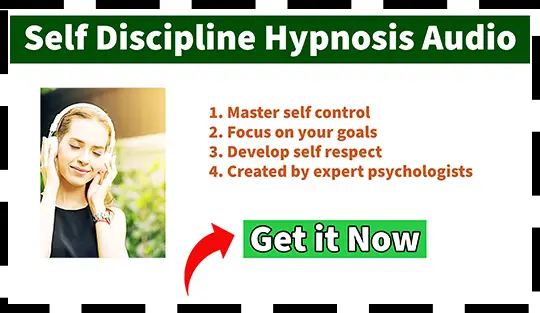A personal self-esteem coach can be a very valuable asset to have. A professional coach can help you understand yourself better by asking deep questions that demand you search yourself for answers. With the right coaching, you can build your self-esteem and confidence. As a coach myself, and with over 20 years experience writing about self-esteem and helping others to discover their path in life, I know what life coaching can offer. On this page, I will explain the many benefits of a self-esteem coach, how much one costs, and how to choose a life coach that suits you.
An experienced self-esteem coach can help you to build your self-esteem and confidence, at work and in your personal life. Life coaching usually lasts from 3 to 9 months and enables you to improve confidence, work-life balance, make better decisions, and see things from a different perspective.
This study into the effects of coaching subjects wanting to lose weight came to several very positive conclusions:
- It helped to empower and encourage self-care.
- It improved self-awareness in terms of opportunities that are possible.
- Those who get coaching learn about the consequences attached to their decisions and benefit emotionally.
- Coaching encourages the client to develop their own goals and unique path.
Source: Newnham-Kanas et al. (2011).
Working with a self esteem coach can therefore really help you to realise your potential and to begin to believe in who you are. I advise you to try it.
How much does a self esteem coach cost?
Every self-esteem coach has their own level of fees and this can vary greatly from one coach to another. Just because someone charges more than another person, does not mean that they are a better coach. So, what is the average cost of a self esteem coach?
| Lowest | Highest | Average | Difference | Packages |
| $50 per hour | $500 per hour | $75-200 per hour | ExperienceReputation | ie. $300 monthly for four 30 mins sessions |
The about figures I’ve taken from choosingtherapy.com
When thinking about the cost of life coaching, you might want to think about how long you are going to take coaching. Generally, you should think in terms of 3 months, 6 months or more depending on your needs. It doesn’t seem logical to take coaching sessions for a very very brief period such as a week or 2, however, this may work in some circumstances.
If you’re going to take self esteem coaching sessions for several months, it does make sense to pay for a package of sessions, as coaches often offer significant discounts for such packages.
As can be seen from the chart above, one of the things that will determine the cost of coaching is the quality of the coach. A coach’s experience and reputation in the field usually determine how much they can charge for their services.
One question I would like to ask you, if you doubt the usefulness of a coach, is:
“How valuable do you think it would be to you if you could learn to like yourself or even better, love yourself?”
How Can Life Coaching Help You Build Self Esteem?
First, I think we should consider coaching in general and what are the advantages of getting a coach?
Some advantages of getting a coach are outlined in this useful article written by Cooper et al. (2013). Some of the things mentioned include the benefits in terms of career development and the fact that coaching is becoming very popular. Cooper et al. (2013) also mention that coaching is associated with greater life satisfaction and productivity on the job.
Here is a summary of how coaching can help you (Cooper et al):
- work-life balance
- making better decisions
- negotiate change in your life
- improve confidence
- see things from a different perspective
- develop and achieve goals
- plan for the future
- Improve achievements and success
As a life coach myself, with considerable experience coaching online students to build self esteem and confidence, I feel the main benefits for you as a client include the following:
A self-esteem coach will ask questions that will get you to think about how best to create goals that can move you forward on your journey towards a more confident and happy life. The presence of the coach means that you have someone you need to account to and who you know will check upon your progress regularly. Left on your own, unless you have very very good self discipline and commitment, you may give up easily or make much slower progress.
In this way, a coach can help you speed up the process of building your self-esteem and becoming more confident. A coach will enable you to stay on track and discuss ideas on how best to proceed. A good coach can help you to think through your issues and how to solve them.
As I hope you can see above, a coach is not the same as a counselor or therapist. The main difference between these is that a coach is there to help you understand what you need to do for yourself and to enable you to think through your conflicts and decide for yourself the best course of action. A therapist or counselor is similar but the main differences are the fact that they will advise you and try to analyze what is going on when you cannot understand. In other words, the therapist counselor, or psychologist analyses and tries to help you fix a problem, whereas a coach, enables you to think through the situation for yourself and to develop a direction in life that you would like to follow.
Find out more about the differences between a therapist and a counsellor here.
Rather than provide advice, a coach’s role is to get you to think about new possibilities that come from within you. A coach is very interested in what you think and what you want, rather than advising on the path that you should follow.
The main advantage, therefore, of having sessions with a coach lies in the ability to see things from a different perspective and to discuss with another person possible alternative actions that you can take to develop your self esteem. The coach is someone to bounce ideas off and have a 2-way discussion about things that concern you. It should be a very safe relationship where you can share and think out loud, whilst at the same time getting the opinion of someone experienced and qualified in building self esteem, confidence, or any other issues that you face.
You need to make sure of course that the coach that you choose is properly qualified. For example, I have studied and taken a diploma course in life coaching which is validated in the UK as a level 4 qualification. Please do check the qualifications of any coach you are considering taking sessions with. Please also check the experience that the person has treated other clients, and any reviews that you can find or comments from others who have been coached by them.
What Skills Should a Good Self-Esteem Coach Have?
Coaches need to have a real motivation to help others. They need to listen, be patient with the client, and above all have the best interests of the client at heart. A coach also needs to be experienced in life and have great communicational skills and be very approachable and be available for any contact that the client needs.
How to Find a Good Life Coach?
With so many options nowadays, and so many coaches available online, and off, it is more important than ever to choose the kind of life coach that will suit you best. There are many places online where you can find life coaches but probably the best is to start with researching them on Google and possibly through forums or social media. Most coaches will have a professional website where you can find out more about the coach in question, what specializations they have, how they can help you, and how to contact them for more information.
Of course, you might be interested to contact me directly and enquire about my personal one-to-one coaching services. I do offer personalized self-esteem programs and sessions at very special prices if you contact me through this website.
References
Grande, D. Ph.D. (2020). Life Coaching – What (choosingtherapy.com). https://www.choosingtherapy.com/life-coaching
Cooper, H. N., Goldman, K. D., & Schmalz, K. J. (2013). Got Game? The Role of Coaches and Coaching in Improving Your Career and Life “Games”. Health promotion practice, 14(6), 801-804.
Newnham-Kanas, C., Morrow, D., & Irwin, J. D. (2011). Participants’ perceived utility of motivational interviewing using Co-Active Life Coaching skills on their struggle with obesity. Coaching: An International Journal of Theory, Research and Practice, 4(2), 104-122.



